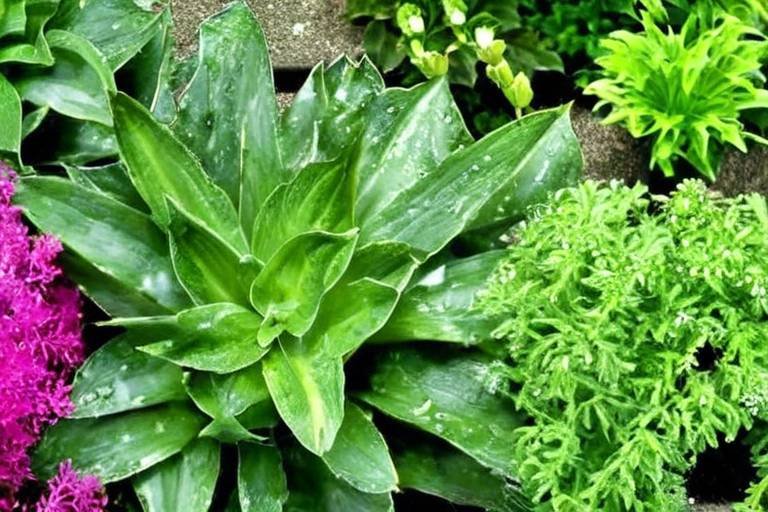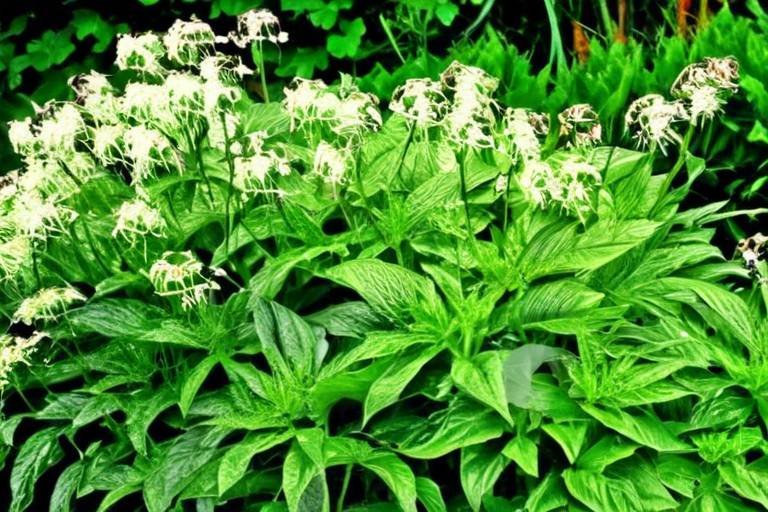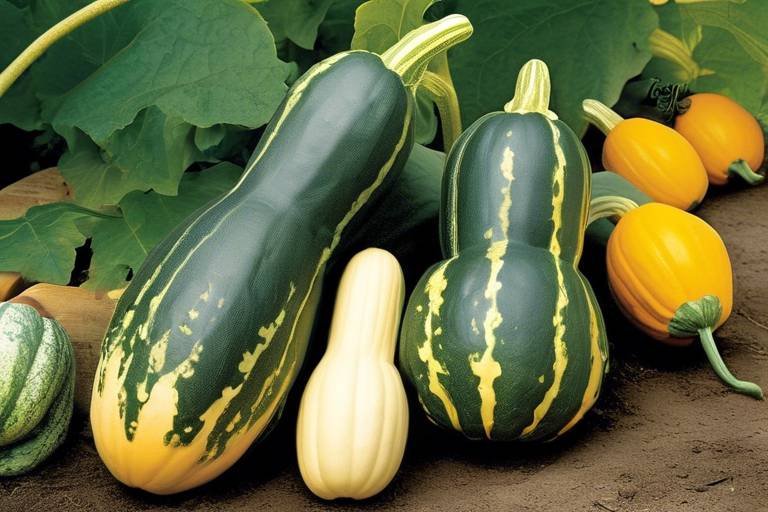Best Plants for Repelling Pests in Your Garden
When it comes to maintaining a pest-free garden, incorporating plants that naturally repel insects can be a game-changer. Not only do these plants add aesthetic appeal to your outdoor space, but they also serve as an eco-friendly alternative to chemical pesticides. By strategically planting insect-repelling plants, you can create a harmonious environment that keeps unwanted pests at bay.
Lavender, known for its delightful fragrance, is not just a treat for the senses but also a powerful deterrent for mosquitoes, flies, and moths. Simply planting lavender around your garden or near entry points to your home can help ward off these pesky insects, allowing you to enjoy your outdoor space without the nuisance of buzzing bugs.
Marigolds, with their vibrant blooms, are more than just a visual delight—they are natural pest controllers. These cheerful flowers are effective in repelling aphids, mosquitoes, and even pesky rabbits that may be eyeing your garden greens. By incorporating marigolds into your garden, you can add a pop of color while keeping unwanted pests away.
Mint, with its invigorating aroma, is a versatile plant that not only adds flavor to culinary dishes but also acts as a natural repellent for ants, fleas, and mice. Planting mint in pots can help contain its growth while effectively deterring common household pests, making it a practical and fragrant addition to your garden.
Rosemary, a culinary staple, does double duty as a pest repellent. This fragrant herb not only enhances the taste of your dishes but also serves as a deterrent for mosquitoes and carrot flies. Whether grown in pots or in the ground, rosemary is a valuable ally in protecting your garden from unwanted insect invaders.
Chrysanthemums, with their striking blooms, contain a natural insecticide called pyrethrin that is highly effective against a range of pests including ants, roaches, ticks, and silverfish. Planting chrysanthemums in sunny areas not only adds beauty to your garden but also provides an effective defense against common garden nuisances.
Basil, a beloved herb in the culinary world, also has pest-repelling properties. In addition to enhancing the flavor of your meals, basil plants are known to repel mosquitoes and houseflies. Placing pots of basil near outdoor seating areas can help create a pleasant environment free from buzzing insects.
Lemon balm, with its refreshing citrus scent, is a natural mosquito and gnat repellent. This easy-to-grow herb not only keeps pesky insects at bay but also attracts beneficial pollinators to your garden, creating a balanced ecosystem that promotes plant growth and biodiversity.
Rue, while effective at repelling cats, dogs, and certain insect pests like flies and fleas, should be handled with caution due to its potential for skin irritation. This plant serves as a natural deterrent for unwanted visitors in your garden, but it is important to exercise care when dealing with rue to avoid any adverse reactions.

Lavender
Lavender, with its beautiful purple blooms and calming fragrance, is not just a delight for the senses but also a powerful ally in the battle against pests. This versatile plant is known for its ability to repel a variety of unwanted insects, including mosquitoes, flies, and moths. By strategically planting lavender around your garden or placing pots near entry points to your home, you can create a natural barrier that deters these pests effectively.
What makes lavender even more appealing is its low maintenance nature and resilience to different growing conditions. Whether you have a sunny spot in your garden or a cozy balcony, lavender can thrive and work its magic in keeping pests at bay. Imagine strolling through your garden, surrounded by the soothing scent of lavender, while knowing that pesky insects are being kept at a safe distance.
Furthermore, lavender's pest-repelling properties extend beyond insects. It is also known to discourage larger animals like rabbits from munching on your prized plants. With lavender in your garden, you not only add a touch of elegance but also ensure that your plants are protected from a range of potential threats.

Marigolds
Marigolds, with their vibrant blooms and natural pest-repelling properties, are a must-have addition to any garden. These beautiful flowers not only add a pop of color but also serve as effective deterrents against various pests. Marigolds are known for their ability to repel aphids, mosquitoes, and even rabbits, making them a versatile and valuable plant for pest control.
Planting marigolds strategically around your garden can help create a protective barrier against unwanted insects. Their strong scent acts as a natural repellent, keeping pests at bay without the need for harmful chemicals. Additionally, marigolds are low-maintenance plants that thrive in sunny conditions, making them a practical and attractive solution for pest management.

Mint
Mint plants are not only a delightful addition to your garden but also serve as a powerful natural pest repellent. The strong aroma of mint is highly effective in deterring a wide range of pests, including ants, fleas, and even mice. By planting mint in strategic locations or in pots, you can help control pest populations without the need for harmful chemicals.

Rosemary
Discover natural ways to keep pests away from your garden by planting specific insect-repelling plants. These plants not only add beauty but also act as a natural deterrent, reducing the need for chemical pesticides.
Rosemary is not just a culinary herb but also a powerful pest repellent. Its fragrant leaves not only enhance the flavor of your dishes but also serve as a natural barrier against mosquitoes and carrot flies. Whether grown in pots on your patio or in the ground within your garden, rosemary is a versatile plant that offers both aesthetic appeal and pest protection.
If you want to create a strategic pest-repelling environment, consider planting rosemary near outdoor seating areas or around entry points to your home. The aromatic oils released by the plant act as a natural deterrent, keeping unwanted insects at bay without the need for harmful chemicals.
Moreover, rosemary is a low-maintenance plant that thrives in sunny locations with well-drained soil. By incorporating rosemary into your garden, you not only elevate the visual appeal of your outdoor space but also establish a natural defense system against common garden pests.
- Q: Are these plants safe for pets and children?
- Q: Can I plant these pest-repelling plants together in the same garden bed?
- Q: How often should I water these plants?
A: While these plants are generally safe, some may cause mild irritation if ingested. It's advisable to research each plant's specific effects and take necessary precautions to ensure the safety of your pets and children.
A: Yes, you can create a diverse garden bed by combining different pest-repelling plants. This not only enhances the visual appeal of your garden but also provides a comprehensive defense system against a wide range of pests.
A: Proper watering is essential for the health and vitality of these plants. While individual watering requirements may vary, it's recommended to monitor the soil moisture levels and adjust your watering schedule accordingly to ensure optimal growth.

Chrysanthemums
Chrysanthemums, with their vibrant blooms and natural insect-repelling properties, are a fantastic addition to any garden looking to ward off pests in a chemical-free way. These beautiful flowers contain a powerful natural insecticide called pyrethrin, which is highly effective against a wide range of pests such as ants, roaches, ticks, and silverfish. By planting chrysanthemums in sunny areas of your garden, you can create a natural barrier against unwanted invaders without the need for harmful chemicals.

Basil
Basil, a popular herb in many cuisines, offers more than just its delightful taste to your dishes. This aromatic plant is a natural repellent for mosquitoes and houseflies, making it a valuable addition to your garden. By planting pots of basil near outdoor seating areas or around entry points to your home, you can create a pleasant environment free from pesky insects. Additionally, basil's vibrant green leaves and pleasant aroma add a touch of freshness to your garden, enhancing its overall appeal.

Lemon Balm
Lemon balm, also known as Melissa officinalis, is a fragrant herb that not only delights the senses with its citrusy aroma but also serves as a powerful tool in repelling unwanted pests from your garden. This versatile plant is a member of the mint family and is easy to grow, making it a popular choice for both seasoned gardeners and beginners alike.
When it comes to pest control, lemon balm is particularly effective at keeping mosquitoes and gnats at bay. By planting lemon balm in your garden, you can create a natural barrier that deters these pesky insects, allowing you to enjoy your outdoor space without the constant buzzing and biting.
In addition to its pest-repelling properties, lemon balm also attracts beneficial pollinators such as bees and butterflies. These pollinators play a crucial role in the health and vitality of your garden, helping to ensure the successful growth and reproduction of your plants.
One of the best ways to incorporate lemon balm into your garden is by planting it in pots or containers. This not only helps to contain its growth, preventing it from spreading uncontrollably, but also allows you to easily move the plant to different areas of your garden as needed.
Overall, lemon balm is a versatile and effective plant for repelling pests while adding beauty and fragrance to your outdoor space. Whether you're looking to keep mosquitoes at bay or simply enjoy the delightful scent of citrus in your garden, lemon balm is a wonderful addition to any green space.

Rue
Rue, also known as Ruta graveolens, is a versatile plant that serves as a natural repellent for various pests. This herbaceous perennial is effective in deterring cats, dogs, and certain insect pests like flies and fleas. The strong scent of rue acts as a deterrent, keeping these unwanted visitors at bay. However, it is essential to handle rue with caution due to its potential to cause skin irritation.
Frequently Asked Questions
- Can these insect-repelling plants completely eliminate pests from my garden?
While these plants are effective at repelling certain pests, they may not completely eliminate all insects from your garden. They can help reduce the presence of pests and minimize the need for chemical pesticides.
- Are these plants safe for pets and children?
Most of the plants mentioned, such as lavender, marigolds, and mint, are safe for pets and children when grown in the garden. However, it's important to research each plant's specific toxicity levels and take precautions if needed, especially with plants like rue that can cause skin irritation.
- How should I care for these insect-repelling plants?
Each plant has its own care requirements, but in general, they thrive in well-drained soil and sunlight. Regular watering and occasional pruning can help maintain their growth and pest-repelling properties. Be sure to research the specific needs of each plant for optimal care.



















